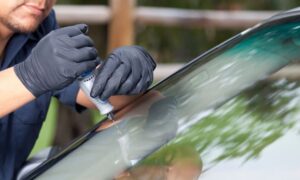Congratulations on your new vehicle. Whether you bought used or brand new, nothing quite feels like owning a “new” car. This is usually when you will initially tell yourself that you plan on taking excellent care of your new purchase, you will keep her clean, properly maintained. I’m here to help you stick to the promise you made to yourself.
Here is what you need to keep your vehicle maintained:
Documents
Have the proper documentation put in safekeeping (do not leave in the vehicle); this would include the bill of sale, title, tax information, and any loan records you may have. Retain the current registration in your vehicle in case of an emergency. Keeping a journal of the vehicle’s maintenance history is always a good idea as well.
Yearly System Checks
Depending on the state that the vehicle is registered in, you may need to have yearly system checks.
This may include an emissions system check or a safety inspection. If you purchased aftermarket items for the vehicle like headlights or if you wanted to add tint to your windows, it’s always best to check with your local DMV to find out what is legal for your state as this may cause a failure during an inspection.
Retain Proper Insurance Coverage
Always retain the proper insurance for your vehicle. It is recommended to shop around and check on car insurance offer from multiple carriers to get the best terms and rates. Some may offer multiple vehicle/property discounts as well, and it’s best to review your policy at least every year.
Proper Internal Maintenance
You may think I am just talking about keeping your car vacuumed, dusted, and trash free. Although that’s a good start, I’m talking about checking that the spare tire has adequate air and that you have jumper cables and other essentials in case of emergency. Depending on where you live, you may need to keep an ice scraper and shovel on hand.
Proper External Maintenance
We all know that the elements from the road can build upon our vehicles. Tree sap and tar from the road can leave your vehicles’ paint job wrecked. That is only part of the problem. If you happen to live in a state that gets snow in the winter, then all the salt and sand can build up on the undercarriage of the vehicle and start to corrode the metal on the car.
It is advisable to wash your vehicle in between storms to ensure that it does not build up. When you are doing that, make sure to check the windshield wipers for cracking or deterioration. Also, check that all lights and turn signals are in working order.
Servicing of Internal Systems
The single most important thing that you can do for your car is to perform (or have someone else perform) the routine maintenance. Although I personally can perform the routine maintenance on my vehicle, I also retain an experienced mechanic with a full range of tools and equipment for projects that takes knowledge to perform (like timing and transmission work).
These are items that are generally checked if you were to go in for an oil change that I believe should be checked regularly if you are your own mechanic:
- Tires/Rotors/Brakes – Check air pressure, tread depth, and signs of excess wear on tires. Check the rotors for signs of excess wear and damage and brake pads for the amount of padding-left remaining.
- Filters/Hoses/Belts – Check that your filters, hoses, and belts are clean, free of debris, and are not frayed/damaged.
- Oil/Fluids – Change the oil/oil filter according to manufacturers’ instructions. Top off all remaining fluids at this time.
- Battery – Batteries are rated for certain weather conditions. If you were to purchase your vehicle from out of state, it would be advisable to check what type of battery it has and if it is rated for the weather in your region.
Knowing Your Vehicle
The car comes with an owners’ manual for a reason. Become familiar with your car! Know what its capabilities are. Not all cars have the same maintenance schedule; some require oil changes every 3,000 miles while others may go to 5,000 miles. They may recommend synthetic over regular oil. Learn how your vehicle feels. I knew when my cars’ alternator was going just by a sound it was making. Be watchful of any lights that come on. Keep up to date on any safety recalls there may be on your car.
If you treat your vehicle like the long-term investment that it is and properly maintain it, it will pay you back tenfold. When properly maintained, not only does the resale value increase exponentially, but you will have a safe, reliable, performance-enhanced vehicle that will need less unnecessary repairs and give you the peace of mind that you will not be stuck in an emergency.




